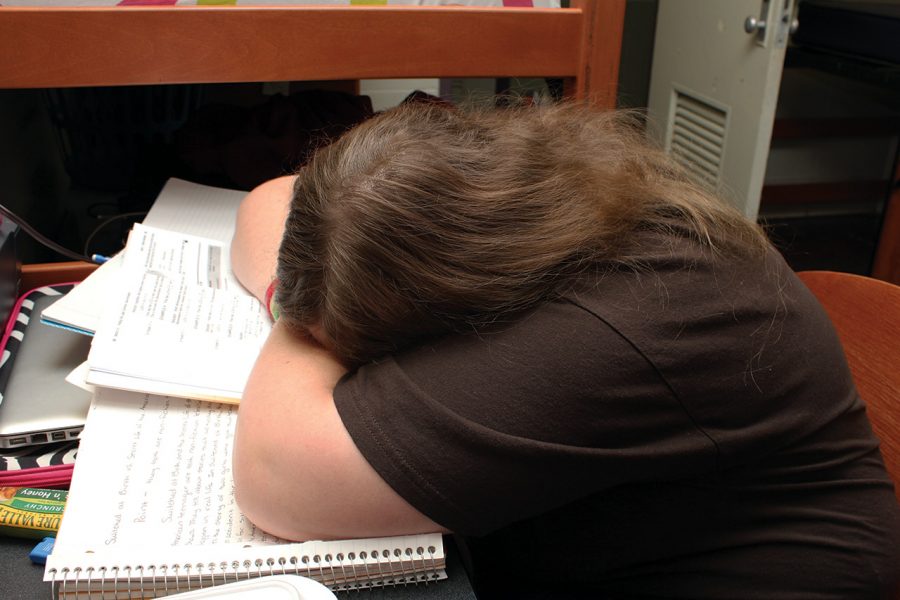Catch some Z’s
November 29, 2012
With finals right around the corner, many students will be cramming and pulling all-nighters with aids of medications and energy drinks. Few know the consequences of memory and immune system impairment lurk around the corner.
Andy Page, a sophomore business major, said sleep deprivation is a regular issue he faces.
“I stay up all night probably once a week,” Page said. “It’s mostly because of stress. I normally have something due the next day. I procrastinate, which is probably why most people do it. Plus, the following nights, it just gets harder to sleep. I’ve had to start taking melatonin to sleep at night.”
Austin Park, a freshman, said he pulls all-nighters not as a means of procrastination but as a source of accomplishment.
“All-nighters help me keep my grades high,” Park said. “They show me that I can push through and give me a sense of accomplishment that I made grades a priority. I don’t think they are going to affect my physiology in the long run; however, they do affect my grades in a positive way.”
The National Sleep Foundation and the Neuroscience Conference recently discovered that sleep deprivation can lead to long-term health conditions such as Alzheimer’s, obesity and even diabetes.
“Sleep deprivation directly affects the immune system, thus affecting reaction times and impairing judgment at the same rate as alcohol,” said Peggy Bergeron, professor of nursing studies. “I discourage all-nighters because — speaking from an academic performance perspective — if you don’t know it the night before the test, you’re not going to get it.”
Short-term memory impairment and reaction time depression have been researched regarding sleep deprivation, though no tests have proven to be absolutely conclusive. The National Sleep Foundation reports that being awake for more than 20 hours affects the brain at the equivalence of a blood-alcohol concentration of 0.08 percent.
“The biggest disservice of (sleep deprivation) is the negative impact on memory,” said Dr. Catherine Hogan-Gancarz, a Madison City Psychometrist. “If students stay up all night studying, they won’t be able to remember a lot of the material on the tests.”
The University of Texas at Austin tested a group of West Point cadets to determine the actual impairment of memory from sleep deprivation, reported in the SLEEP Journal. The study determined that cadets who studied reasonably the night before and received a full night’s sleep saw their test scores improve by 4 percent, while those who stayed up all night studying saw their test scores decrease by 3 percent.
“Avoiding last-minute cramming is best solved by organization and setting up study schedules,” Hogan-Gancarz said. “By reviewing rather than trying to cram information at the last minute, students give their brain a better chance to retain information in long-term memory rather than just regurgitating. One never knows when that information will need to be retrieved at a later time in life.”
Some students know the risk but pull all-nighters regardless.
“I know it’s bad for my health to stay up and pull all-nighters so frequently, but sometimes in life you just have to break the rules,” Page said.


